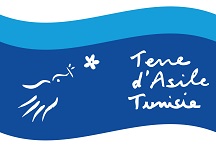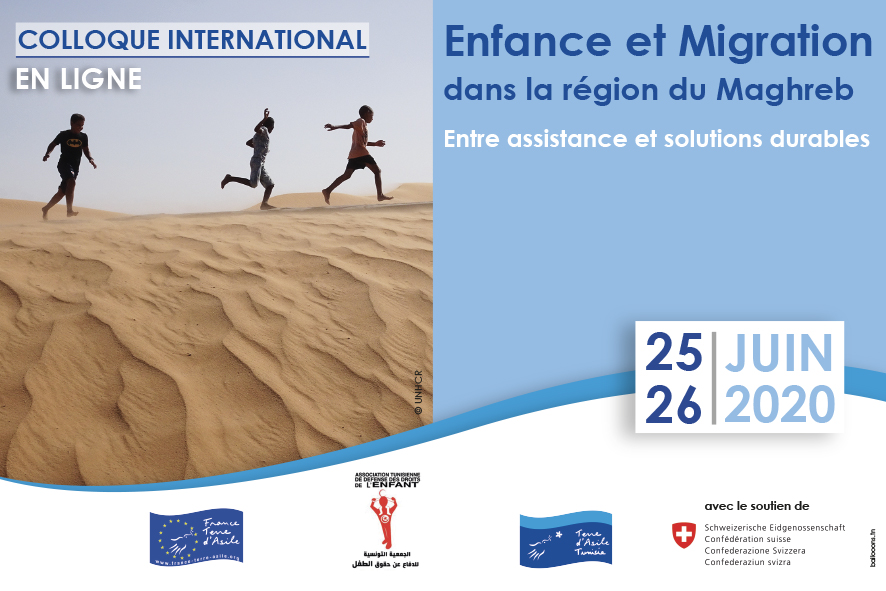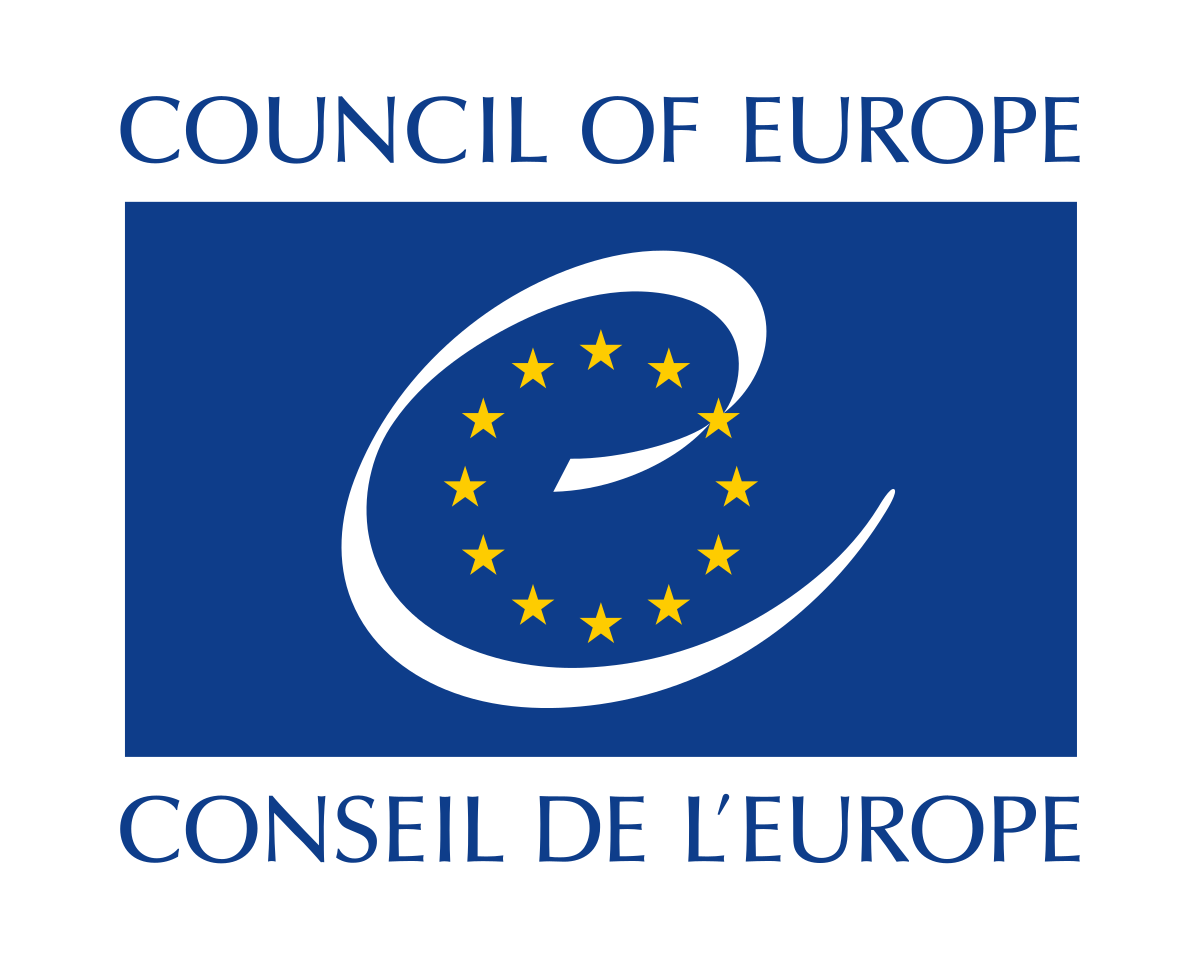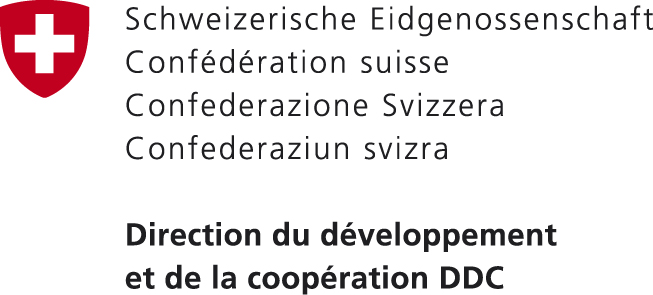Paying for migrants to go back home: how the EU's Voluntary Return scheme is failing the desperate
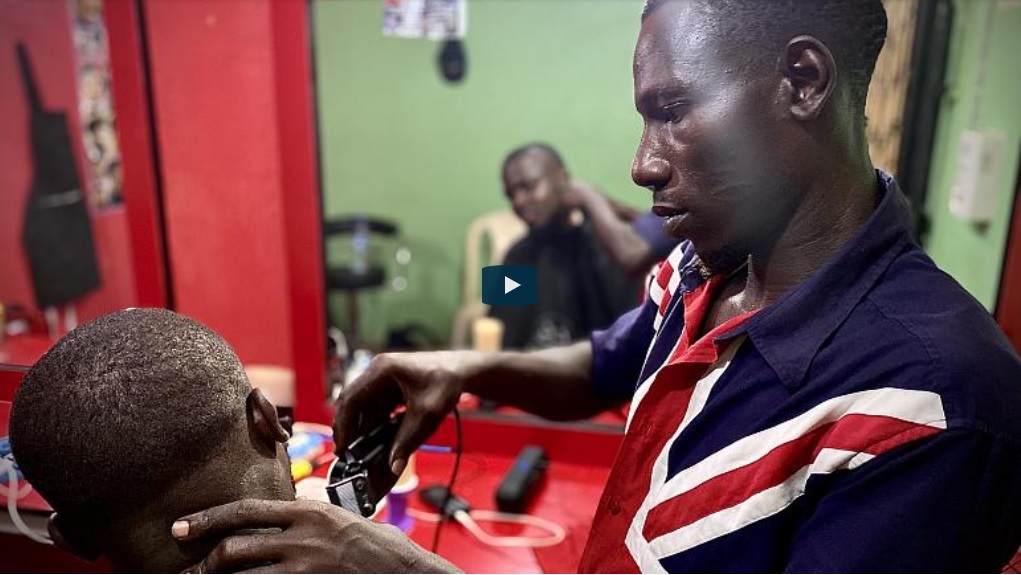
By the time James boarded a flight from Libya to Nigeria at the end of 2018, he had survived a Mediterranean shipwreck, travelled through a half dozen African states, been shot and spent two years being abused and tortured in Libya’s brutal detention centres.
In 2020, back home in Benin City, Edo State, James has been evicted from his house after failing to cover his rent and sleeps on the floor of his barbershop.
He has been shunned by his family and friends for his failure to reach Europe.
“There’s no happiness that you are back. No one seems to care about you [...]. You came back empty-handed,” he told Euronews.
James was one of around 81,000 African migrants returned to their home nation with the aid of the UN’s International Organization for Migration (IOM) and paid for by the European Union, as part of the €357 million Joint Initiative. As well as a seat on a flight out of Libya and a number of other transit nations, migrants are also promised cash, support and counselling to allow them to reintegrate in their home countries once they return.
But a Euronews investigation across seven African nations has revealed massive failings in the programme, considered to be the EU’s flagship response to stopping migrants trying to get to Europe.
Dozens of migrants that have been through the programme told Euronews that once they returned, no support was forthcoming. Even those who did receive financial support - like James - said it was insufficient.
Many are considering making a new break for Europe as soon as the chance arises.
“I feel I don’t belong here,” James said. “If the opportunity comes, I’m taking it. I’m leaving the country.”
Of the 81,000 migrants returned since 2017, almost 33,000 were flown back from Libya, many of whom have suffered detention, abuse and violence at the hands of people smugglers, militias and criminal gangs. Conditions are so bad in the north African country that the programme is called Voluntary Humanitarian Return (VHR), rather than the Assisted Voluntary Return (AVR) programme elsewhere in Africa.
Mohi, 24, who spent three years in Libya, accepted the offer of a flight back home in 2019. But, once there, his reintegration package never materialised. “Nothing has been provided to us, they keep telling us tomorrow,” he told Euronews from north Darfur, Sudan.
Mohi is not alone. IOM’s own statistics on returnees to Sudan reveal that only 766 out of over 2,600 have received economic support. It blames high rates of inflation and a shortage of both goods and cash in the market.
But Kwaku Arhin-Sam, who evaluates development projects as director of the Friedensau Institute for Evaluation, estimates that half of the IOM reintegration programmes fail.
“Most people are lost after a few days”, he said.
Two-thirds of migrants don't complete the reintegration programmes
The IOM itself lowers this estimate even further: the UN agency told Euronews that so far only one-third of the migrants who have started reintegration assistance have completed the process. A spokesperson said that as the joint initiative is a voluntary process, “migrants can decide to pull out at any time, or not to join at all”.
He said that reintegrating migrants once they return home goes far beyond the organisation’s mandate, and “requires strong leadership from national authorities”, as well as “active contributions at all levels of society”.
Between May 2017 and February 2019, IOM had helped over 12,000 people return to Nigeria. Of them, 9,000 were “reachable” when they returned home, 5,000 received business training and 4,300 received “reintegration aid”. If access to counselling or health services is included, IOM Nigeria says, a total of 7,000 out of 12,000 returnees - or 58% - received reintegration support.
But the number of people classified as having completed the reintegration assistance programme was just 1,289, and research by Jill Alpes, a migration expert and research associate at the Nijmegen Centre for Border Research, found that surveys to check the effectiveness of these packages were conducted with only 136 returnees.
Meanwhile, a Harvard study on Nigerian returnees from Libya estimates that 61.3% of the respondents were not working after their return, and an additional 16.8% only worked for a short period of time, not long enough to generate a stable source of income. Upon return, the vast majority of returnees, 98.3%, were not in any form of regular education.
The European Commissioner for home affairs, Ylva Johansson, admitted to Euronews that "this is one area where we need improvements." Johansson said it was too early to say what those improvements might be but maintained the EU have a good relationship with the IOM.
Sandrine, Rachel and Berline, from Cameroon, agreed to board an IOM flight from Misrata, Libya, to Yaounde, Cameroon’s capital in September 2018.
In Libya, they say they suffered violence and sexual abuse and had already risked their lives in the attempt at crossing the Mediterranean. On that occasion, they were intercepted by the Libyan coastguard and sent back to Libya.
Once back home, Berline and Rachel say they received no money or support from IOM. Sandrine was given around 900,000 cfa francs (€1,373.20) to pay for her children’s education and start a small business - but it didn’t last long.
“I was selling chicken by the roadside in Yaounde, but the project didn’t go well and I left it,” she said.
Sandrine, from Cameroon, recalled giving birth in a Tripoli detention centre to the sound of gunfire.
All three said that they had no idea where they would sleep when they returned to Cameroon, and they had no money to even call their families to inform them of their journey.
“We left the country, and when we came back we found the same situation, sometimes even worse. That’s why people decide to leave again,” Berline says.
In November 2019, fewer than half of the 3,514 Cameroonian migrants who received some form of counselling from IOM were reported as “effectively integrated”.
Seydou, a Malian returnee, received money from IOM to pay his rent for three months and the medical bills for his sick wife. He was also provided with business training and given a motorbike taxi.
But in Mali he takes home around €15 per day, compared to the more than €1,300 he was able to send home when he was working illegally in Algeria, which financed the construction of a house for his brother in the village.
He is currently trying to arrange a visa that would enable him to join another of his brothers in France.
Seydou is one of the few lucky Malians, though. .Alpes’ forthcoming research, published by Brot für die Welt (the relief agency of the Protestant Churches in Germany) and Medico International, found that only 10% of migrants returned to Mali up to January 2019 had received any kind of support from IOM.
IOM, meanwhile, claims that 14,879 Malians have begun the reintegration process - but the figure does not reveal how many people completed it.
The stigma of return
In some cases the money migrants receive is used to fund another attempt to reach Europe.
In one case, a dozen people who had reached Europe and been sent home were discovered among the survivors of a 2019 shipwreck of a boat headed to the Canary Islands. “They had returned and they had decided to take the route again,” said Laura Lungarotti, IOM chief mission in Mauritania.
Safa Msehli, a spokeswoman for the IOM, told Euronews that it could not prevent individuals from attempting to reach Europe again once they had been returned.
“It is however in the hands of people to decide whether or not they migrate and in its different programme IOM doesn’t plan to prevent people from re-migrating”, she said.
What is the IOM?
From 2016, the IOM rebranded itself as the UN Migration Agency, and its budget has ballooned from US$242.2 million (€213 million) in 1998 to exceed US$2 billion (€1.7 billion) for the first time in the autumn of 2019 - an eightfold increase. Though not part of the UN, the IOM is now a “related organisation”, with a relationship similar to that of a private contractor.
The EU and its member states collectively are the largest contributors to IOM’s budget, accounting for nearly half of its operational funding.
IOM has been keen to highlight cases of when its voluntary return programme has been successful on its website, including that of Khadeejah Shaeban, a Sudanese returnee from Libya who was able to set up a tailoring shop.
Migrants from Afghanistan and Yemen have been returned under the programme as well as Somalia, Eritrea and South Sudan, despite the fact that travel advice issued by EU countries discourage any travel to these countries.
Under international human rights law, the principle of 'non-refoulement' guarantees that no one should be returned to a country where they would face torture, cruel, inhuman or degrading treatment or punishment and other irreparable harm. This principle applies to all migrants at all times, irrespective of migration status.
IOM argues that procedures are in place to inform migrants during all the pre-departure phases, including for vulnerable cases, explaining what support the organisation can provide once landed.
But even when migrants land back in countries not torn by long-lasting conflicts, such as Nigeria, some risk facing dangers and threats to their lives.
UNHCR’s Guidelines on International Protection considers that trafficked women or minors may have valid claims to refugee status, and risk persecution on their return to Nigeria, including the risk of being re-trafficked.
The questionable voluntariness of return operations spreads also to neighbouring Niger, the place with the highest number of migrants assisted by IOM and touted as the new European southern border.
In 2015, Niger became willing to fight migration in return for EU reimbursement but hundreds of thousands of migrants continue to follow the desert routes heading north, while the trafficking business is flourishing.
According to the European Council on Refugees and Exiles, an average of 500 people are being expelled from Algeria to Niger every week, with Algerian authorities expelling migrants in violation of international law.
Algerian police detain, identify and transport migrants to the so-called “point zero”, 15 km from the border with Niger. From there, migrant women, children and men are forced to walk in the desert for approximately 25 km to reach the nearest settlement.
“They arrive at an IOM border settlement (Assamaka) in appalling conditions, including pregnant women bleeding and under complete shock,” noted Felipe González Morales, the UN Special Rapporteur, after his visit in October 2018.
Alpes, at the Nijmegen Centre for Border Research, believes these deportations are key to why migrants accept to be returned from Niger. Often located during IOM’s search and rescue operations in the desert, the migrants have little other choice than to accept the help of the organisation and the subsequent offer of repatriation.
In her research, Alpes writes that "only those migrants who accept returns can become part of the target group of IOM’s humanitarian work. Although exceptions can and are made, IOM offers in principle transportation from Assamakka to Arlit only to those deportees who accept to return to their country of origin".
Morales, the UN Special Rapporteur, appears to agree. He noted that “many of the migrant persons who have signed up for Assisted Voluntary Returns are victims of multiple human rights violations and are in need of protection based on international law”, and therefore should not be returned.
”However, very few are referred for asylum/refugee status determination, and the rest are processed for return”.
“The fact that the European Union Trust Fund provides financial support to IOM largely to sensitise and return migrants to their countries of origin, even when the voluntariness in many cases is questionable, compromises its rights-based approach to development cooperation,” he wrote.
Lack of scrutiny
Loren Landau, professor of migration and development at the Oxford Department of International Development, argues that there is a lack of independent scrutiny on IOM’s work.
“There is very little independent research, and a lot of reports, but they are all IOM reports. They have commissioned their own evaluation for years,” he says.
Meanwhile, Arhin-Sam, the development programme evaluation specialist, questions the accountability of the whole structure, arguing that local institutions and agencies depend financially on IOM.
“This has created a high-level of dependence for national agencies that have to evaluate the work of international agencies like IOM: they can’t be critical of IOM. So what do they do? They keep saying IOM is doing well in their reports. This way, IOM can go to the EU and say that everything is good”.
According to Arhin-Sam, local NGOs and agencies helping returnees “are in a very dangerous competition among themselves” to get as much work as possible from UN agencies and get into their good books.
“If IOM is working with a local NGO, it cannot work with UNHCR. They consider themselves lucky to be funded by IOM and therefore cannot criticise it,” he said.
The EU participates as an observer in both UNHCR and IOM decision-making bodies, without the right to vote, and all EU member states are also members of the IOM.
“The IOM biggest funder is the EU, and they have to succumb to the demands of their client. This makes the partnership very questionable”, added Arhin-Sam.
“[When European officials] come down to evaluate projects, they check if everything written in the proposal was delivered.
“But whether this reflects people’s will and the complexities of reality on the ground, that’s another story”.
An abusive relationship
“African states are not necessarily pro-migrants themselves”, continues Landau. “The EU has bought off states with bilateral agreements. If they stand up against the EU, they will lose foreign aid. Despite the language of partnership, it’s evident the relationship between the EU and African states is like an abusive relationship, where one partner is dependent on the other”.
Researchers point out that while returns from Libya offer a fundamental escape route from a situation of extreme vulnerability for migrants, they do not address the issue of why people went to Libya in the first place.
Hover your cursor over the map below to see the stats.
A study by Libyan humanitarian activist, Amera Markous, argues that migrants and refugees cannot make informed assessments on whether to return to their countries when in a situation of distress - such as being in a Libyan detention centre.
“How do you ensure they are leaving because they want to go, or just because they are desperate and IOM is giving them this only alternative?” Markous said.
And as well as abuse, stress and a lack of medical care can influence the decision of migrants to return. Jean-Pierre Gauci, senior research fellow at the British Institute of International and Comparative Law, believes that in detention centres, those managing the centres can exercise pressure on a detained migrant to sign up to the programme.
“There is a situation of a position of power, perceived or actual, that can hinder effective and truly free consent”, he argued.
In response, IOM argues that the VHR programme is voluntary, migrants can change their minds about returning before the flight and remain.
“This is not uncommon for migrants who are ready to travel, with air tickets and travel documents, to change their mind and stay in Libya,” it said.
But Landau argues that the EU-IOM initiative is not designed with the lives of migrants in mind.
“The goal here is not really making migrants happy or to really reintegrate them, but getting rid of them in a way that is palatable for Europeans,” he said.
“If by ‘working’ we mean: getting rid of these people, then the project is working for the EU. It’s a bargain. [It] is not aimed at resolving the root causes of migrations, but creates an excuse for these kinds of deportations.”
This investigation is followed by two case studies, telling the stories of more of those people who took part in the scheme in Nigeria and Eritrea.
Par Lillo Montalto Monella et Sara Creta, publié sur Euronews le 22 juin 2020.
Photo : James, 30, has been helped to reintegrate into life in Nigeria after returning home from Libya. The IOM helped him to open a barbershop in Benin City, Edo State, Nigeria. - Copyright Photo: Sara Creta
